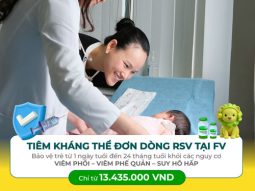The Intensive Care Unit (ICU) is the frontline in managing critically ill patients, where coordinated multidisciplinary care is critical to treatment success. At FV Hospital, the comprehensive multidisciplinary care model has proven effective in improving clinical outcomes and supporting recovery in critically ill patients.
This was also the central theme of the recent CME conference “Multidisciplinary Integrated Care Models for Critical Care Patients in the ICU,” held by FV Hospital. The event welcomed 500 doctors from hospitals across southern Vietnam and featured presentations by intensive care experts from FV Hospital and 115 People’s Hospital.
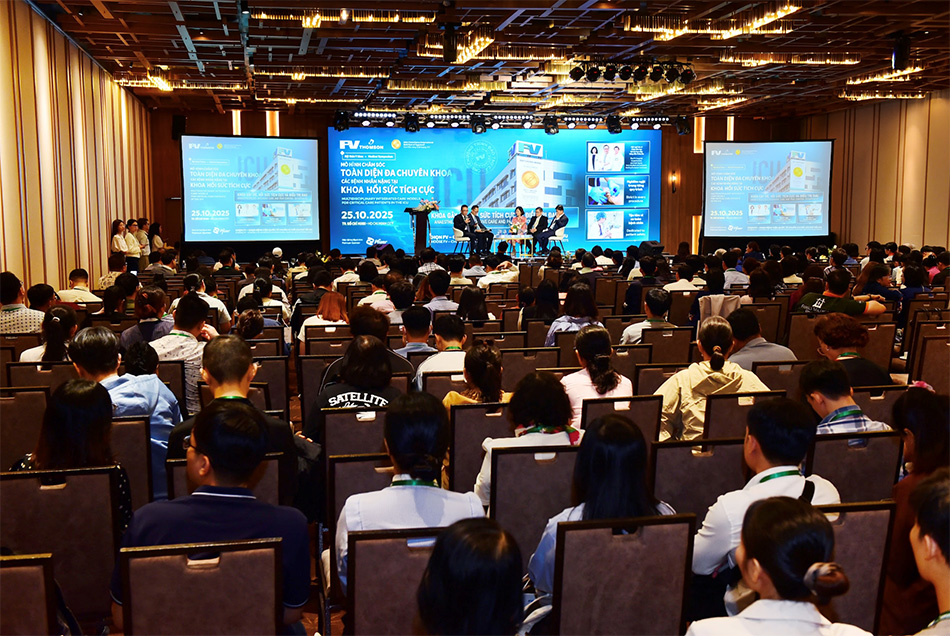
CME Conference on “Multidisciplinary Integrated Care Models for Critical Care Patients in the ICU,” recently held by FV Hospital in Ho Chi Minh City.
A Multidisciplinary “Miracle” in Saving a Rare Haemophilia Patient
Vo Anh Khoa, MD, MSc, Specialist Level II, Deputy Head of Anaesthesiology, Intensive Care & Pain Control, FV Hospital, presented an extraordinary medical case involving a 36-year-old Cambodian postpartum patient with massive, uncontrolled bleeding. She had already undergone multiple unsuccessful surgeries in her home country. When transferred to FV Hospital, the patient was in severe haemorrhagic and septic shock. The ICU team had to administer a total of 7.2 litres of blood products to keep her alive.
FV’s multidisciplinary council urgently convened and identified the cause of the uncontrolled bleeding: acquired Haemophilia A with Factor VIII activity at 0%, a complex and extremely rare autoimmune coagulation disorder. Close collaboration between the Intensive Care, Haematology, Surgery, Obstetrics, Diagnostic Imaging, Blood Bank, and Pharmacy teams enabled successful bleeding control using specialised medication.
“Thanks to the strict collaboration among multiple specialties, and the patient’s remarkable willpower, she survived the critical period and was discharged after more than 30 days of treatment at FV,” Dr Vo Anh Khoa concluded.
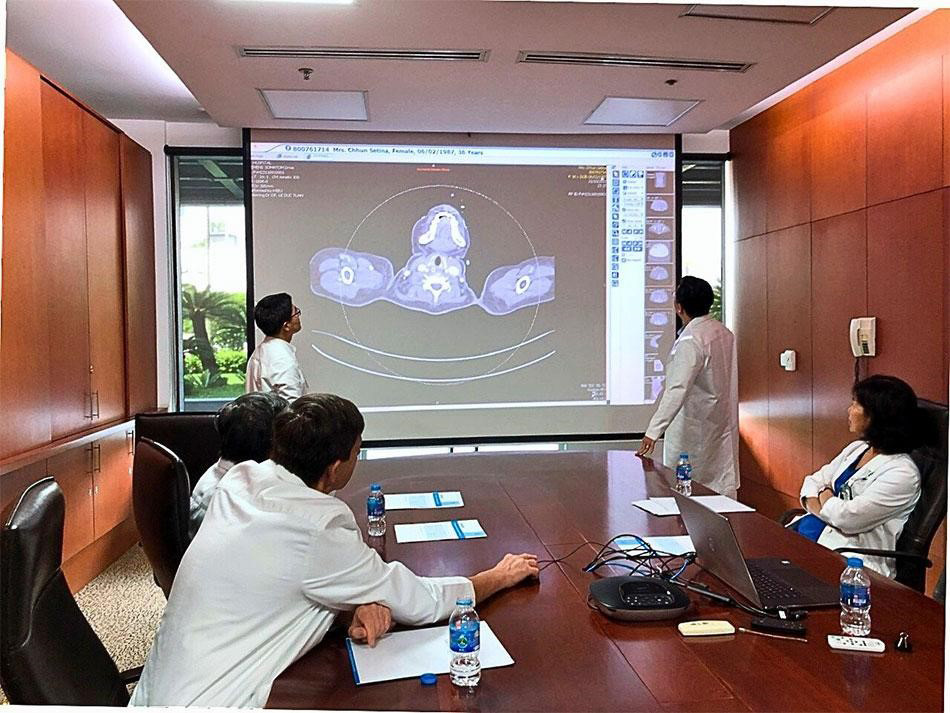
FV Hospital during a multidisciplinary council meeting to coordinate management of complex cases. (Photo: FV)
Implementing a Comprehensive and Individualised Care Model for Critically Ill Patients
ICU patients are often critically ill, with multiple organ dysfunctions requiring rapid detection and timely intervention to preserve life. This demands strong multidisciplinary coordination. At the same time, each patient requires individualised care, particularly in two key areas that strongly influence recovery: specialised nutrition and infection control.
According to Ly Quoc Thinh, MD, MSc, Specialist Level II, Head of Anaesthesiology, Intensive Care & Pain Management at FV Hospital, 20–50% of ICU patients are malnourished, and can lose up to 3–15% of their muscle mass after just one week of treatment. Accurately determining energy needs and tailoring an individual nutritional plan for each patient are therefore essential.
To address specialised nutritional needs, FV Hospital has invested in an Indirect Calorimetry (IC) system and body composition analysis equipment, enabling physicians to optimise nutritional calculations. Experts prioritise early enteral feeding and provide approximately 70% of energy requirements during the acute phase, as attempting to reach 100% too quickly may be harmful.
Nguyen Thi Lam Giang, MD, MSc, Senior Consultant at FV’s Intensive Care Unit, emphasised that sepsis and invasive fungal infections are common and major causes of mortality in ICU settings. Nearly 30% of ICU patients at FV develop sepsis, with 25% testing positive for multidrug-resistant organisms. She therefore recommends a flexible, individualised approach to “fluid resuscitation and antibiotic therapy,” tailored to disease severity, site of infection, and the patient’s clinical history.
FV also utilises modern microbiological diagnostic technologies for rapid pathogen identification. In suspected severe fungal infections, treatment with potent antifungal agents can begin immediately without waiting for culture results, ensuring faster infection control and helping to prevent antimicrobial resistance.
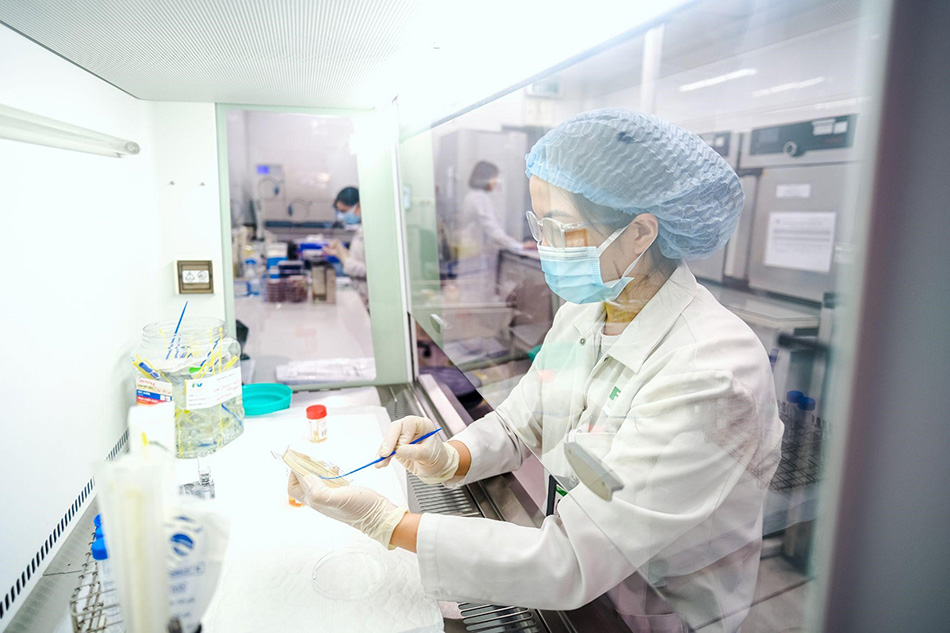
Applying advanced microbiological testing technologies for early pathogen identification. (Photo: FV)
Post-ICU Care – Accelerating Patient Recovery
FV’s model for managing critically ill patients places strong emphasis on post-ICU issues such as pressure ulcers, malnutrition, and, importantly, psychological and emotional disorders, including prolonged depression after hospital discharge. This requires ongoing coordination among Nutrition, Rehabilitation, and Psychology teams as part of a unified patient-centred care approach, which is one of FV’s core philosophies.
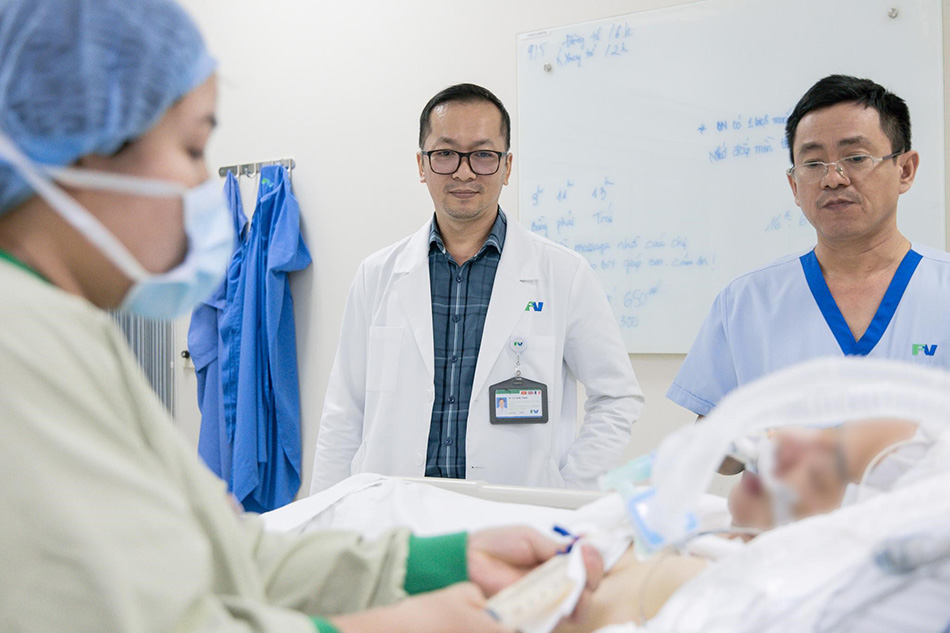
FV’s multidisciplinary ICU care model has contributed to the successful management of many complex cases. (Photo: FV)
The conference “Multidisciplinary Integrated Care Models for Critical Care Patients in the ICU,” organised by FV Hospital, is part of the hospital’s ongoing effort to connect with colleagues and share practical ICU experience in what is widely considered the frontline of healthcare.
Many experts praised the conference as one of the few highly specialised ICU-focused events with strong practical value, highlighting new trends in the management of critically ill patients in which FV is taking the lead. Rather than focusing solely on technology or new techniques, they emphasised the importance of comprehensive care models that prioritise people, knowledge, and teamwork, which are core elements in intensive care medicine.
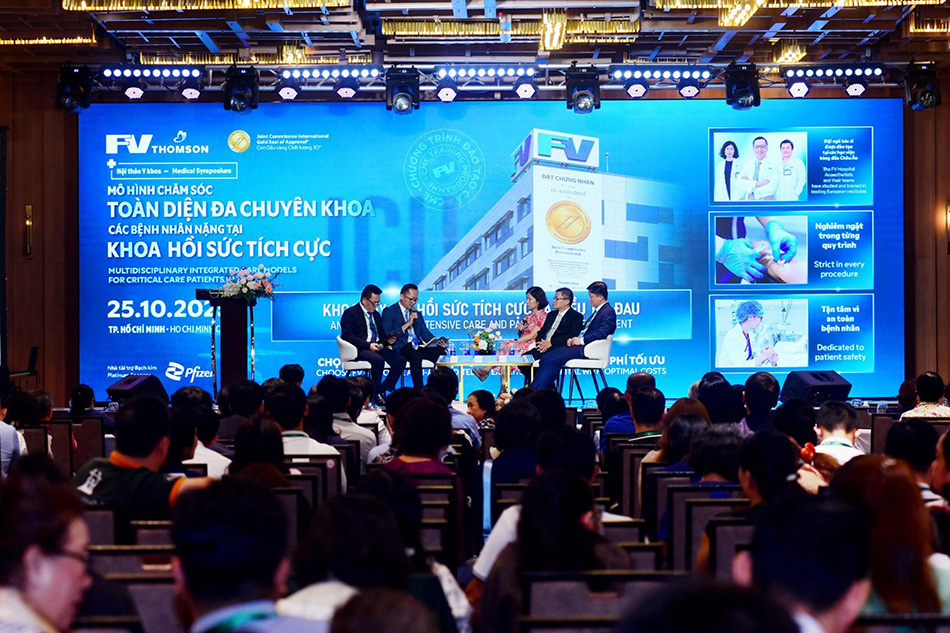
The FV conference attracted 500 participating physicians (Photo: FV)
“High-dependency and intensive care medicine is one of the most complex fields, requiring broad knowledge, rapid clinical reflexes, and seamless multidisciplinary cooperation. Every decision made in the ICU directly affects patient survival. Therefore, it is crucial to continually update medical knowledge, share practical experience, and standardise clinical practices across hospitals,” emphasised Vu Truong Son, MD, MSc, Medical Director of FV Hospital.
He added that CME programmes are part of FV’s long-term strategy to strengthen professional capacity, standardise clinical practice in line with JCI international standards, and foster knowledge sharing within the medical community.

 Vi
Vi 


